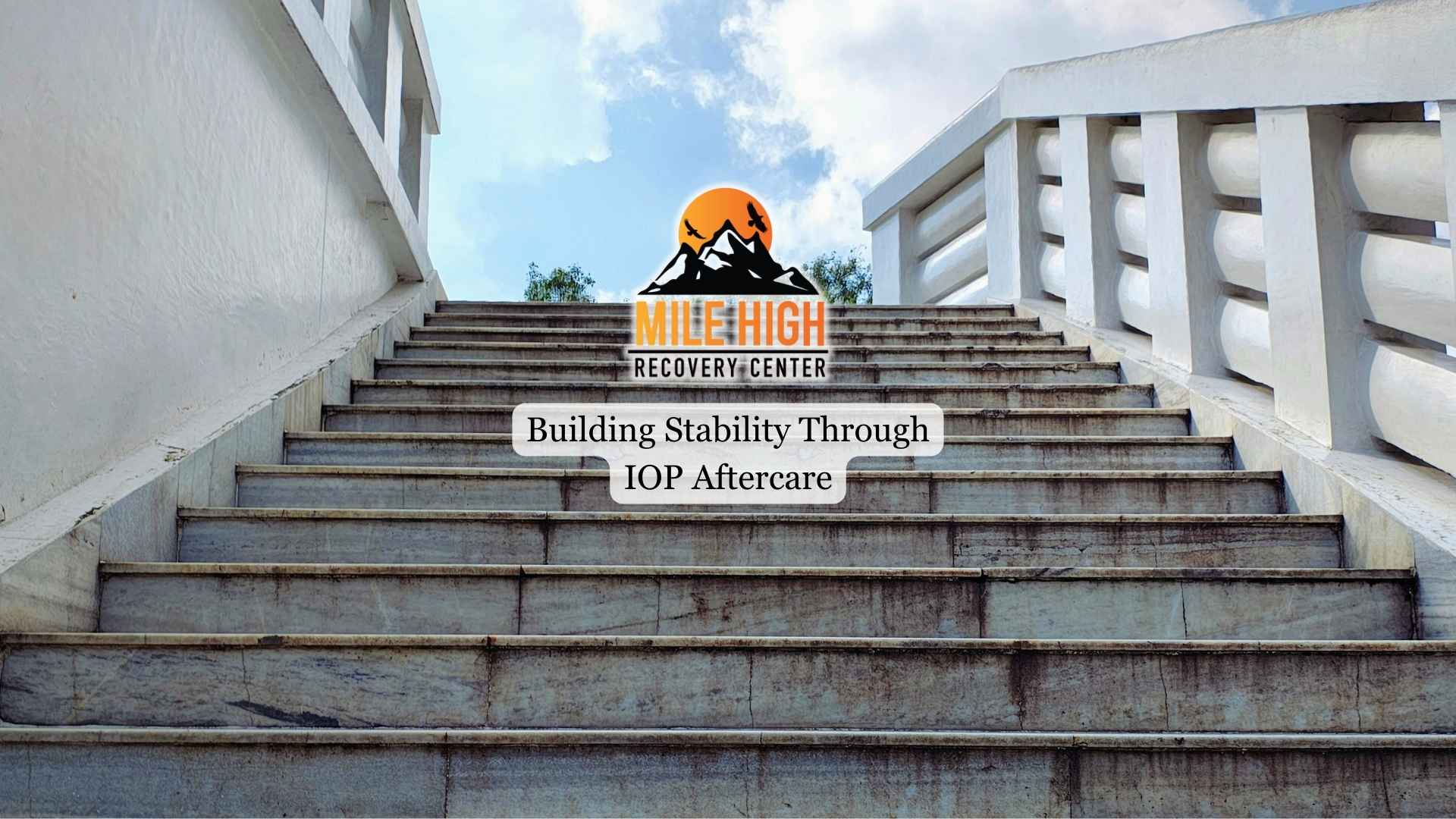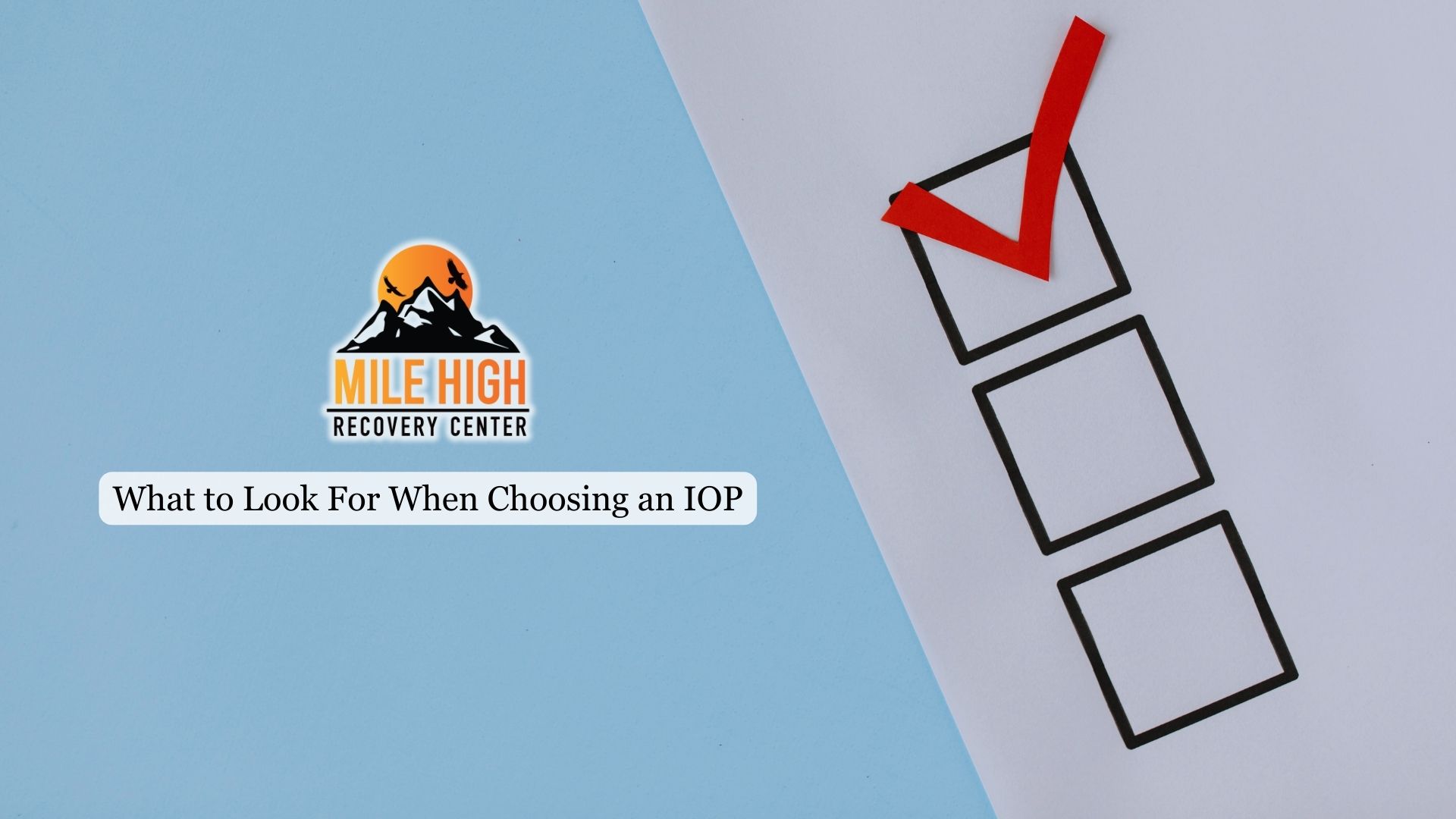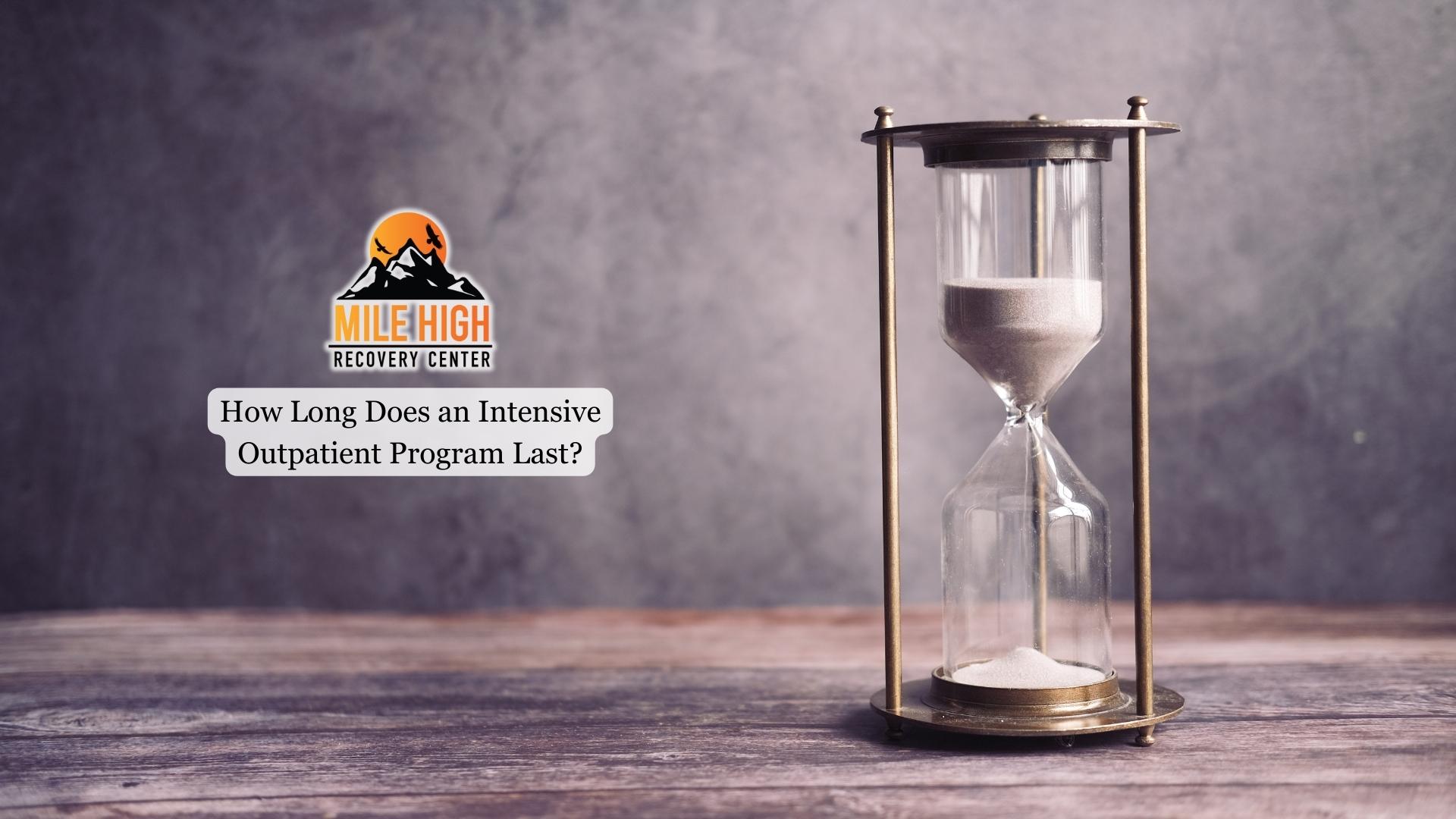Our Approach to Mental Health Residential Treatment
Mile High Recovery Center (MHRC), located in the heart of Denver, Colorado, is a beacon of hope for people facing the complex challenges of co-occurring mental health and substance abuse disorders.
Our specialized mental health residential treatment program is designed to provide comprehensive, integrated care that addresses the unique needs of each client.

Addressing Co-Occurring Disorders in Mental Health Residential Treatment
Living with co-occurring disorders can be a challenge. But, with the right care, anyone can achieve long-term wellness.
We believe that mental health residential treatment is a crucial step in the journey toward lasting recovery. By providing a supportive, immersive environment, we create a safe space for people to focus on their healing and growth.
Our integrated treatment philosophy combines evidence-based therapies with holistic modalities to promote holistic healing of the body, mind, and spirit.
Understanding Mental Health Residential Treatment for Co-occurring Disorders
Mental health residential treatment is a comprehensive, live-in approach to addressing mental health and substance abuse challenges.
Studies have shown this level of care is particularly beneficial for people dealing with co-occurring disorders, as it allows for intensive, round-the-clock support and treatment.1
According to the National Survey on Drug Use and Health, approximately 21.5 million adults in the United States have a co-occurring mental health and substance use disorder (SUD). The complexity of these intertwined issues requires a specialized, integrated approach to treatment.2
Residential treatment programs like Mile High Recovery Center, are designed to address both mental health and substance abuse challenges at the same time. This increases the likelihood of successful, long-term recovery.
Integrated Treatment Philosophy for Mental Health Residential Treatment
At Mile High Recovery Center, our integrated treatment philosophy is the foundation of our approach to co-occurring disorders.
We recognize that mental health and SUD are often deeply interconnected, and treating one without addressing the other can hinder the recovery process.
Our Specialties
Our team of highly qualified addiction treatment professionals specializes in:
- Relapse prevention
- Trauma-informed care
- Brain-based learning
- Family involvement
Creating a Comprehensive Treatment Plan
We create a well-rounded treatment plan that addresses the whole person by combining:
- Evidence-based therapies, such as cognitive-behavioral therapy (CBT) and dialectical behavior therapy (DBT)
- Holistic modalities like meditation and art therapy
Initial Assessment and Personalized Treatment Planning in Mental Health Residential Treatment
At Mile High Recovery Center, we understand that every person’s journey to recovery is unique. That’s why we begin each client’s residential treatment experience with a comprehensive initial assessment.
An in-depth evaluation allows our expert team to identify co-occurring disorders and individual needs. This sets the stage for the development of a personalized treatment plan that addresses the whole person – body, mind, and spirit.
The initial assessment often includes four key components:
Medical and Psychiatric Evaluation
Our medical professionals conduct a thorough examination of a person’s physical health. They review their medical history and identify any underlying conditions that may impact treatment.
At the same time, our psychiatric team assesses a client’s mental health, evaluating:
- Symptoms
- Diagnoses
- Treatment history
This comprehensive evaluation ensures that we have a complete picture of a client’s health. This allows us to tailor our approach to their specific needs.
Substance Abuse History and Assessment
We take the time to understand a client’s unique relationship with substance abuse, exploring their:
- History of use
- Triggers
- Any previous attempts at recovery
This assessment helps us identify the root causes of substance abuse and develop strategies to address them effectively.
By gaining a deep understanding of a person’s experiences, we can create a treatment plan that is both relevant and empowering.
Psychosocial Assessment
A person’s background, relationships, and support system play a crucial role in their recovery journey.
Our psychosocial assessment delves into a client’s personal history, family dynamics, and social environment. This helps us understand the context in which substance abuse and mental health challenges have developed.
This insight allows us to involve loved ones in your treatment when appropriate and to help clients build a strong foundation of support that will sustain them long after leaving our care.
Psychological Evaluation
Our team of mental health professionals conducts a comprehensive psychological evaluation to identify any underlying mental health concerns that may be contributing to substance abuse.
We use evidence-based assessment tools and clinical interviews to gain a deep understanding of a person’s:
- Emotional well-being
- Thought patterns
- Coping mechanisms
This evaluation is essential in developing a treatment plan that addresses a person’s mental health needs in tandem with their substance abuse recovery.
What Happens After the Initial Assessment?
Once the initial assessment is complete, our multidisciplinary team comes together to analyze the results and collaborate with clients in creating a personalized treatment plan. This plan serves as a roadmap for the journey through residential treatment. It outlines:
- Therapies
- Interventions
- Support services
Evidence-Based Therapies and SUD Treatment
Evidence-based therapies form the core of our substance abuse treatment program. These scientifically-validated approaches have been shown to be effective in helping people manage substance abuse issues and co-occurring mental health symptoms.
Some of the evidence-based therapies we offer include:
Cognitive-Behavioral Therapy (CBT)
Dialectical Behavior Therapy (DBT)
DBT focuses on developing skills in:
- Mindfulness
- Distress tolerance
- Emotion regulation
- Interpersonal effectiveness
These skills help to manage intense emotions and reduce self-destructive behaviors. It is particularly effective for those with co-occurring SUD.4
Motivational Interviewing (MI)
This client-centered approach helps people explore and resolve ambivalence about change. This can enhance their motivation to engage in treatment and pursue recovery.
Eye Movement Desensitization and Reprocessing (EMDR)
EMDR is a trauma-focused therapy that helps clients process and heal from traumatic experiences that may be contributing to their substance abuse and mental health issues.
Holistic Approaches to Mental Health Residential Treatment
In addition to evidence-based therapies, Mile High Recovery Center incorporates holistic modalities into our mental health residential treatment program.
These complementary approaches promote:
- Emotional regulation
- Self-awareness
- The development of healthy coping skills
Our Holistic Therapy Options
Our holistic therapies include:
- Meditation: Mindfulness practices help clients cultivate present-moment awareness, reduce stress and anxiety, and develop a greater sense of inner peace.
- Art therapy: Expressive therapies like art therapy provide a creative outlet for processing emotions, building self-esteem, and fostering self-discovery.
- Outdoor adventure therapy: Engaging in outdoor activities and challenges helps clients build confidence, develop problem-solving skills, and foster a sense of connection with nature and others.
- Recreational therapy: Participation in recreational activities promotes physical health, social interaction, and the development of new interests and hobbies that can support long-term recovery.
Mental Health Residential Treatment: Medication Management
For people with co-occurring mental health and substance abuse disorders, medication management can be an essential component of treatment.5
Our residential program includes comprehensive medication management services, overseen by our team of psychiatric professionals. These services may include:
Psychiatric Evaluation and Diagnosis
Our experienced psychiatrists conduct thorough evaluations to accurately diagnose mental health conditions. This provides a solid foundation for effective treatment planning and medication management.
Medication Prescription and Monitoring
Based on a person’s unique needs, our psychiatrists prescribe appropriate medications to alleviate symptoms and promote stability. They closely monitor the client’s response to medication, making adjustments as needed to optimize treatment outcomes.
Regular Medication Management Appointments
Clients meet regularly with our psychiatric team to discuss their progress, side effects, and any concerns they may have about their medication.
These appointments ensure that the person’s medication regimen remains:
- Safe
- Effective
- Well-tolerated
Education About Medication Side Effects and Interactions
We believe in empowering our clients with knowledge about their treatment. Our team provides comprehensive education about potential side effects and drug interactions. This helps people make informed decisions about their care and promotes medication adherence.
Dual Diagnosis Support in Mental Health Residential Treatment
In addition to medication management, we provide specialized dual diagnosis support throughout mental health residential treatment.
Our team is trained to address the unique challenges faced by those with co-occurring disorders. They offer guidance, support, and strategies for managing both mental health and substance abuse symptoms. This may include:
Integrated Treatment Planning
Our multidisciplinary team collaborates to create a cohesive treatment plan that addresses both mental health and substance abuse issues at the same time. This integrated approach ensures that all aspects of a person’s well-being are prioritized and treated effectively.
Specialized Therapy Groups
We offer therapy groups specifically designed for people with dual diagnoses. They provide a safe space to explore the complex interplay between mental health and substance abuse.
These groups:
- Foster peer support
- Promote skill-building
- Help clients develop strategies for long-term recovery
Coordination with Outside Providers
Our team works closely with each client’s external healthcare providers, such as therapists and primary care physicians. The goal is to ensure continuity of care and a seamless transition back into the community upon completion of mental health residential treatment.
Ongoing Support and Relapse Prevention
We recognize that the journey to recovery extends beyond residential treatment. Our dual diagnosis support includes ongoing resources, such as alumni groups and referrals to outpatient services. These resources aim to help people maintain their progress and prevent relapse.
At Mile High Recovery Center, we understand the complexities of co-occurring disorders. Because of this, we are committed to providing the specialized care and support necessary for lasting recovery.
Our comprehensive medication management and dual diagnosis services are an integral part of our holistic approach to treatment. This empowers people to heal, grow, and reclaim their lives.
Mental Health Residential Treatment: Creating a Supportive Community
One of the most valuable aspects of mental health residential treatment at Mile High Recovery Center is the supportive community environment.
Our program fosters a sense of belonging and understanding among people facing similar challenges, allowing them to learn from and support one another.
Group Therapy
Group therapy is a central component of our treatment approach. Led by skilled therapists, these sessions provide a safe space for clients to:
- Share their experiences
- Process emotions
- Develop essential interpersonal skills
Topics Covered in Group Therapy
Topics may include:
- Relapse prevention
- Coping with triggers
- Building healthy relationships
- Managing co-occurring mental health symptoms
Other Opportunities for Peer Support
In addition to group therapy, our mental health residential program offers numerous opportunities for peer support and connection.
From shared meals and recreational activities to community meetings and alumni events, clients have ample chances to build meaningful relationships that can serve as a foundation for long-term recovery.
Mental Health Residential Treatment: Aftercare Planning and Transition Support
As clients prepare to transition out of mental health residential treatment, our team works closely with them to develop a comprehensive aftercare plan. This plan is designed to help people manage both their mental health and substance abuse challenges as they return to daily life.
What Aftercare Planning Looks Like
Aftercare planning often includes:
- Identifying and connecting with outpatient treatment providers
- Developing a relapse prevention plan
- Establishing a support network of family, friends, and peers in recovery
- Creating a schedule of recovery-oriented activities and self-care practices
Ongoing Support Services
We understand that the journey of recovery extends well beyond the walls of our treatment center. That’s why we offer ongoing support services to our alumni, including:
- Weekly relapse prevention groups
- Regular check-ins with our clinical team
- Invitations to alumni events and gatherings
Our goal is to ensure that every person who completes our program has the tools, resources, and support they need to maintain long-term recovery and wellness.
Mental Health Residential Treatment: Admissions Process and Getting Started
Taking the first step toward mental health residential treatment can feel overwhelming. But, our admissions team is here to guide you every step of the way.
The admissions process at Mile High Recovery Center is designed to be as seamless and stress-free as possible, ensuring that you or your loved one can access the care you need without delay.
Our admissions process often involves the following steps:
Step 1: Initial Phone Consultation
Our admissions coordinators will:
- Gather information about your situation
- Answer any questions you may have
- Help you determine if our program is the right fit for your needs
Step 2: Insurance Verification
We work with a wide range of insurance providers to help make treatment as accessible and affordable as possible. Our team will verify your insurance coverage and provide you with a clear understanding of any out-of-pocket costs.
Step 3: Pre-Admission Assessment
Prior to admission, we will conduct a comprehensive assessment to identify any co-occurring mental health and substance abuse disorders, as well as any other individual needs or concerns.
Step 4: Admission and Orientation
Once admitted to our program, you will be welcomed by our clinical team and given a thorough orientation to our:
- Facility
- Treatment approach
- Daily schedule
Our Commitment to Your Peace of Mind
We understand that the decision to seek residential treatment is a significant one, and we are committed to supporting you every step of the way.
Our team is available 24/7 to:
- Answer any questions
- Address any concerns
- Provide the guidance and support you need to begin your journey toward healing and recovery

Your Journey Starts Here
At Mile High Recovery Center, we believe that every person deserves the opportunity to live a life free from the burdens of mental health and substance abuse challenges.
Our Approach
Our approach to mental health residential treatment is designed to provide the support, guidance, and tools necessary for lasting recovery and wellness.
We create a unique treatment experience that addresses the whole person by combining:
- Evidence-based therapies
- Holistic modalities
- A supportive community environment
Our team of skilled professionals is dedicated to walking alongside you on your journey, providing the expertise, compassion, and unwavering support you need to achieve your goals.
Contact Mile High Recovery Center Today
If you or a loved one is struggling with co-occurring mental health and substance abuse disorders, we invite you to take the first step toward a brighter future with Mile High Recovery Center.
Your long-term recovery begins here – let us help you discover your unique path to healing, growth, and lasting recovery.
Reach out to us today to learn more about our mental health residential treatment options.
Resources
- https://www.ncbi.nlm.nih.gov/pmc/articles/PMC3746518/
- https://www.samhsa.gov/medications-substance-use-disorders/medications-counseling-related-conditions/co-occurring-disorders
- https://www.ncbi.nlm.nih.gov/pmc/articles/PMC5714654/
- https://www.ncbi.nlm.nih.gov/pmc/articles/PMC2797106/
- https://www.ncbi.nlm.nih.gov/pmc/articles/PMC2174596/






